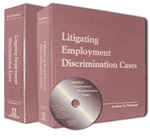Sexual Harassment Lawyers
Sexual harassment comes in various forms ranging from derogatory comments to unwanted sexual advances and threats to sexual assault and rape. Both California and Federal law prohibit sexual harassment. If you, a friend, or a loved one has experienced sexual harassment, call the Sexual Harassment Attorneys of Los Angeles, Helmer Friedman LLP, at (310) 396-7714.
The California Fair Employment and Housing Act defines harassment because of sex as including:
- Sexual harassment
- Same-sex sexual harassment
- Gender harassment
- Gender expression harassment
- Harassment based on pregnancy, childbirth, or related medical conditions
The California Fair Employment and Housing Commission regulations define sexual harassment as unwanted sexual advances or visual, verbal, or physical conduct of a sexual nature.

This definition includes many forms of offensive behavior and includes gender-based harassment of a person of the same sex as the harasser.
The following is a partial list of conduct deemed by the California Fair Employment and Housing Commission to be violations of the California Fair Employment and Housing Act:
- Unwanted sexual advances
- Offering employment benefits in exchange for sexual favors
- Making or threatening reprisals after a negative response to sexual advances
- Visual conduct: leering, making sexual gestures, displaying of suggestive objects or pictures, cartoon or posters
- Verbal conduct: making or using derogatory comments, epithets, slurs, and jokes
- Verbal sexual advances or propositions
- Verbal abuse of a sexual nature, graphic verbal commentaries about an individual's body, sexually degrading words used to describe an individual, suggestive or obscene letters, notes or invitations
- Physical conduct: touching, assault, impeding or blocking movements
If you, a friend, or a loved one has experienced sexual harassment, call the Sexual Harassment Attorneys of Los Angeles, Helmer Friedman LLP, at (310) 396-7714.
The three most common types of sexual harassment complaints filed with the California Department of Fair Employment and Housing are:
- An employee is fired or denied a job or an employment benefit because he/she refused to grant sexual favors or because he/she complained about harassment. Retaliation for complaining about harassment is illegal, even if it cannot be demonstrated that the harassment actually occurred.
- An employee quitting because he/she can no longer tolerate an offensive work environment is referred to as a "constructive discharge" harassment case. Suppose it is proven that a reasonable person, under like conditions, would resign to escape the harassment. In that case, the employer may be held responsible for the resignation as if the employee had been discharged.
An employee is exposed to an offensive work environment. Exposure to various kinds of behavior or to unwanted sexual advances alone may constitute harassment. Federal law (Title VII of the Civil Rights Act of 1964) also prohibits sexual harassment. Title VII applies to employers with 15 or more employees, including state and local governments. It also applies to employment agencies, labor organizations, and the federal government.
Creating a Hostile Work Environment
When an individual in the workplace feels scared, intimidated, or uncomfortable due to abuse or intimidation by a coworker, this creates a hostile work environment. While any number of behaviors might create a hostile work environment, any conduct or actions that create an environment in which an employee dreads going to work are generally seen as creating such a setting.
A hostile work environment is sometimes referred to as an "offensive work environment" or an "abusive work environment." The individual causing a hostile work environment may be an employee, a supervisor, an owner, or even an independent contractor. There are federal and state laws in place to protect employees from being subjected to workplace hostility.

The Equal Employment Opportunity Commission ("EEOC") regulations define sexual harassment to include unwelcome sexual advances, requests for sexual favors, and other verbal or physical conduct of a sexual nature constitute sexual harassment when this conduct explicitly or implicitly affects an individual's employment, unreasonably interferes with an individual's work performance, or creates an intimidating, hostile, or offensive work environment.
The Equal Employment Opportunity Commission recognizes that sexual harassment can occur in a variety of circumstances, including but not limited to the following:
- The victim as well as the harasser may be a woman or a man.
- The victim does not have to be of the opposite sex.
- The harasser can be the victim's supervisor, an agent of the employer, a supervisor in another area, a co-worker, or a non-employee.
- The victim does not have to be the person harassed but could be anyone affected by the offensive conduct.
- Unlawful sexual harassment may occur without economic injury to or discharge of the victim.
- The harasser's conduct must be unwelcome.
If you, a friend, or a family member has experienced sexual harassment, call the Sexual Harassment Attorneys of Los Angeles, Helmer Friedman LLP, at (310) 396-7714.


